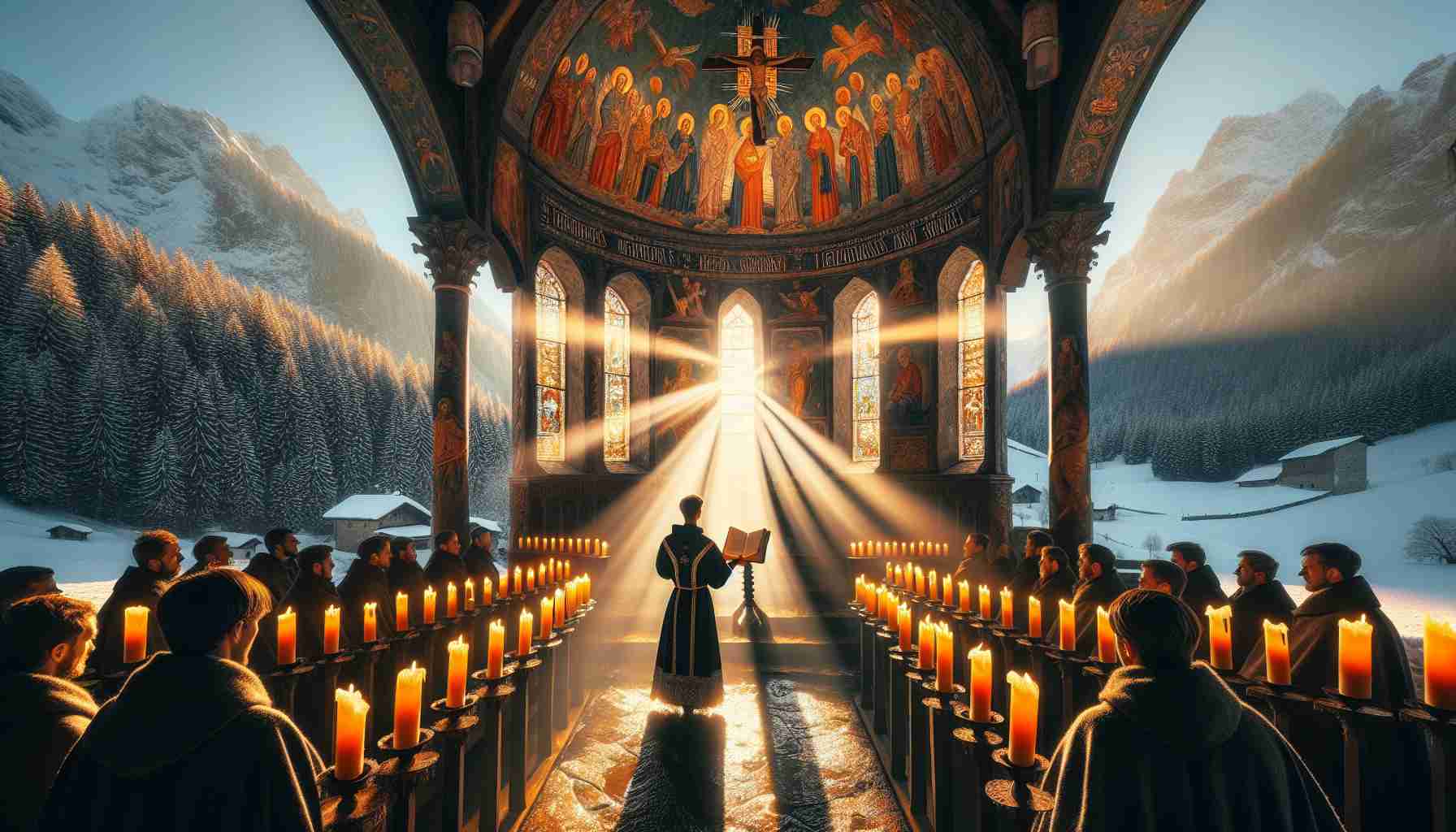

In the steep valley of Glarus, hemmed by snow-capped Alps and whispering forests, June sunlight pierced through the timbered roofs of St. Hilarius Church. The year was 1513, and the village air, still damp from late spring rains, carried an uncommon current—a trembling expectance of words that might yet burn.
Inside the church, the townsmen gathered, cloaks still damp from morning dew, hands calloused from stone and soil. They had come not for liturgical chant or perfumed incense but for something sharper—sermons fashioned not from papal decree but the Scriptures themselves. Huldrych Zwingli, the newly appointed parish priest, stood before them, his voice rising like the wind over Walensee.
“Preach the word,” he declared, “in season and out of season.” His tone bore no ornament, yet each phrase landed with the weight of a blacksmith’s hammer. “Correct, rebuke, encourage—with great patience and careful instruction.” (2 Timothy 4:2)
It was the first time many had heard the Bible spoken in their own tongue, and not a syllable in Latin. Gone were indulgences, relics, holy bones paraded in silver bone-boxes. In their place: the raw marrow of Scripture. The townspeople leaned forward without realizing it, hunger stirring where routine had long reigned.
Zwingli’s words did not erupt like thunder; they moved like mountain weather—patient, insistent, inescapable. And in them, villagers heard things long buried under ecclesiastical forms: grace unbought, salvation unearned, Christ unchained from Rome’s treasury keys.
But even as peasants nodded and blacksmiths pondered, not all hearts in Glarus warmed to this fire. Bishop Hugo, bloated with Canon Law and palatial taxes, frowned from afar. Behind the doors of Zurich’s Grossmünster Cathedral, whispers grew fierce: was this priest sowing schism?
Zwingli pressed on, not by sword, but scroll. By 1519, his preaching in Zurich sent tremors through the city gates. Gone were lenten fasts imposed by Rome; the famous “Sausage Supper” saw believers eat meat in Lent, a savory defiance of papal rule. In the cathedral's stone cloister, old idols vanished. Statues stood decapitated, altarpieces whitewashed, organs silenced. Worship had shifted—not upward through incense, but inward by the Word.
Zwingli had taken Erasmus’s call for a biblically grounded faith and nailed it to Zurich’s heart. Scripture, he taught, was not a veil upon mystery but light unto the path. Baptism was no longer a sacrament for salvation but a sign of belonging. Christ ruled through Scripture now, not Rome’s decrees.
His defiance mounted through disputations and pamphlets. The “67 Articles,” a bold manifesto, rejected indulgences, priestly celibacy, and the Mass itself. The Church must be re-formed by the Bible, nothing more. Crowds swelled. Opponents sharpened their quills. And still, he preached.
But not even fire escapes gravity. By 1531, war bled from words to steel. Zurich's militia faced a Catholic alliance at Kappel—a quiet field, tall with rye and low clouds. Zwingli should have stayed behind, yet he rode with the standard-bearers, wearing not armor, but a clergyman’s robe.
The battle was brief and brutal. When the smoke cleared and the crows circled, they found his body split by blade, face smashed to pulp. He was forty-seven years old. His corpse was quartered, burned, scattered—a martyr to some, a heretic to others.
Yet ash births new forests.
From Zwingli’s sermons sprang rivers. Heinrich Bullinger took up his mantle in Zurich. Across Europe, Reformers swapped Latin for vernacular Bibles, gospel choirs for dusty chants. The Swiss Reformation spread not like fire but rain—soaking, enduring, impossible to suppress.
In time, Zurich became a beacon of Reformed theology. Calvin’s Geneva flamed brighter still. But it was in Glarus, beneath the thin light of early June, where one man first dared to climb the pulpit with Scripture alone—daring to believe that the Word of God could stand against the towering cathedral of Rome.
Today, St. Hilarius still stands, its humble walls cloaking the resonance of that first defiant voice. Tourists pass through its stone arch, unaware that the worn floor beneath once trembled with a sermon that cracked history.
Zwingli did not live to see his reform flourish—but he was faithful in season, and out. His sermons were not safe, but searing. And like the prophet’s scroll, they tasted bitter and sweet—sweet to the soul, bitter to a broken world unwilling to be healed.
Faith had found its echo in the Alps. And the echoes would not die.